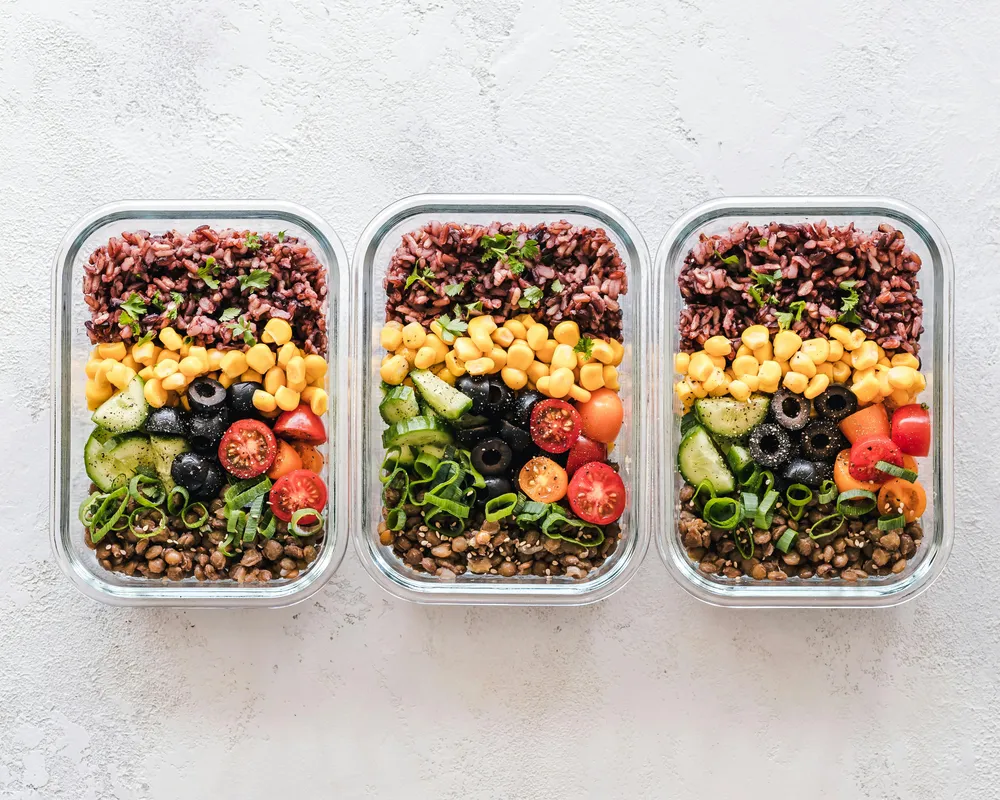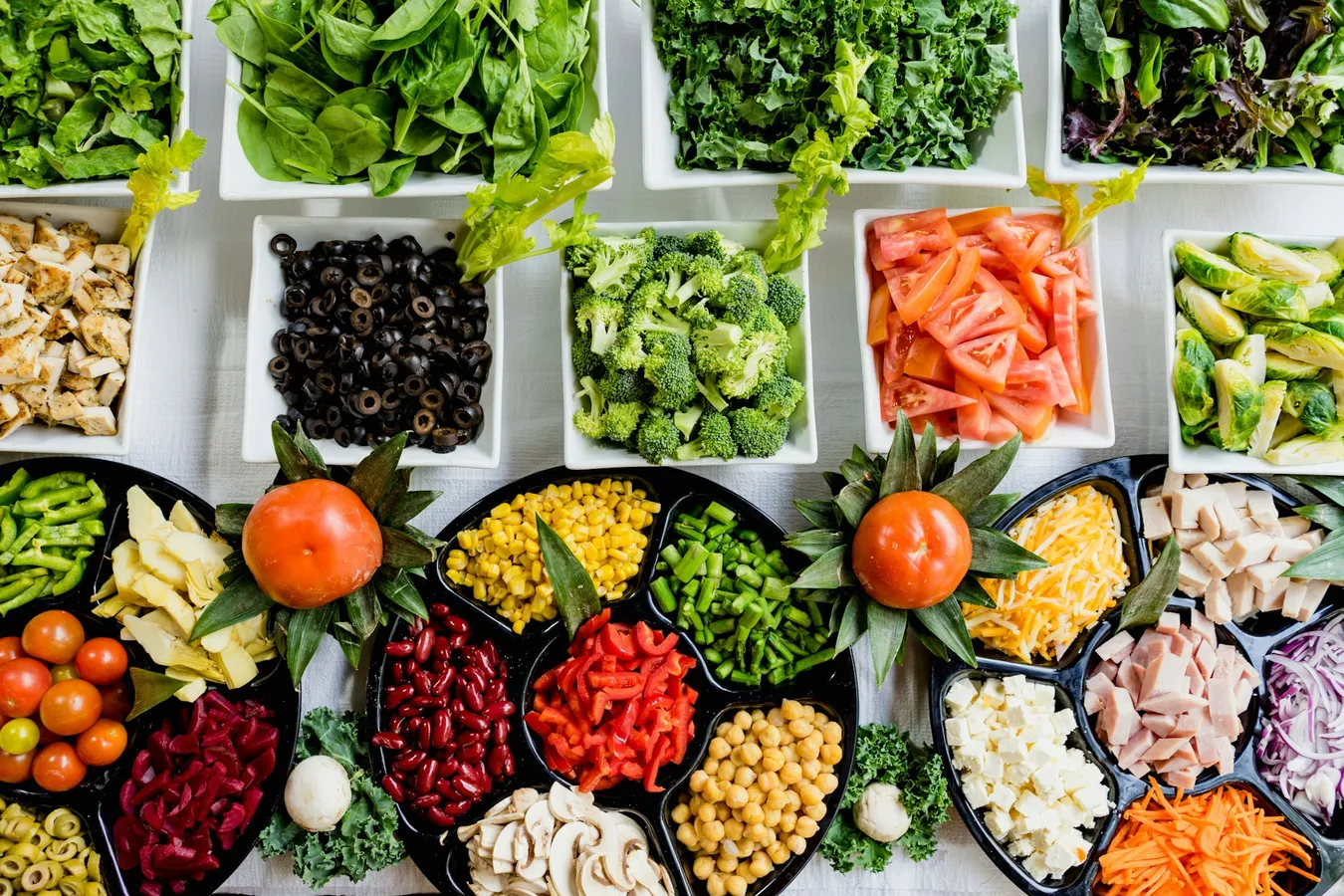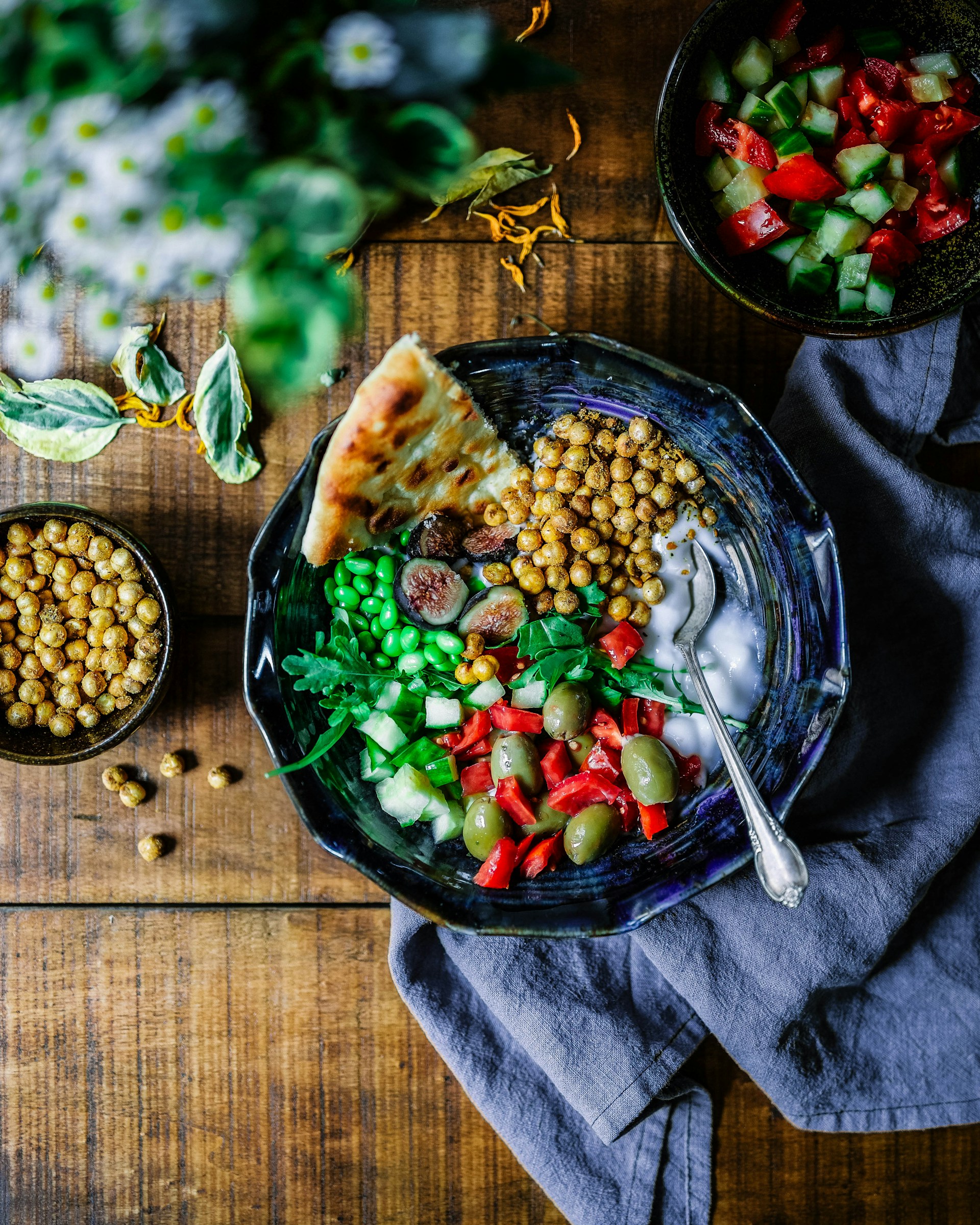Transitioning to a vegan lifestyle can feel overwhelming at first, but meal planning makes it easier and ensures you get balanced, nutritious meals. Here’s a simple guide to help you plan effectively and stay on track.
Why Meal Planning Helps
Meal planning can:
- Save time and reduce daily decision fatigue.
- Help you eat a balanced diet with all essential nutrients.
- Prevent food waste and save money.
- Reduce stress about what to eat each day.
How to Start Meal Planning
- Assess Your Schedule:
- Consider how much time you have to cook during the week.
- Identify days when quick meals are needed.
- Plan around social events or dining out.
- Create a Basic Structure:
- Breakfast: Quick and easy options.
- Lunch: Prep-friendly meals.
- Dinner: Balanced, hearty meals.
- Snacks: Simple, nutritious options.
- Plan for Convenience:
- Batch cook essentials like rice, lentils, or roasted vegetables.
- Prep extra veggies when chopping for a meal.
- Keep quick staples on hand (canned beans, frozen vegetables, whole grain bread).
Simple Weekly Meal Plan
Monday:
- Breakfast: Overnight oats with chia seeds and berries.
- Lunch: Lentil soup with whole grain bread.
- Dinner: Stir-fried tofu with brown rice and steamed broccoli.
- Snack: Hummus with carrot sticks.
Tuesday:
- Breakfast: Whole grain toast with peanut butter and banana.
- Lunch: Chickpea salad sandwich with cucumber slices.
- Dinner: Baked sweet potatoes with black beans and avocado.
- Snack: Roasted almonds.
Wednesday:
- Breakfast: Smoothie with spinach, banana, and oat milk.
- Lunch: Quinoa salad with roasted vegetables and tahini dressing.
- Dinner: Vegan chilli with cornbread.
- Snack: Dark chocolate and walnuts.
Thursday:
- Breakfast: Porridge with flaxseeds and maple syrup.
- Lunch: Buddha bowl with rice, chickpeas, and greens.
- Dinner: Pasta with tomato and lentil sauce.
- Snack: Apple slices with almond butter.
Friday:
- Breakfast: Chia pudding with coconut yoghurt and granola.
- Lunch: Veggie wrap with hummus and spinach.
- Dinner: Grilled tofu with roasted sweet potatoes and green beans.
- Snack: Rice cakes with tahini spread.
Saturday:
- Breakfast: Scrambled tofu on whole grain toast.
- Lunch: Roasted vegetable and quinoa bowl.
- Dinner: Vegan curry with jasmine rice.
- Snack: Trail mix.
Sunday:
- Breakfast: Vegan pancakes with berries.
- Lunch: Avocado toast with cherry tomatoes.
- Dinner: Stuffed bell peppers with lentils and quinoa.
- Snack: Popcorn with nutritional yeast.
Tips for Meal Planning Success
- Keep it simple. You don’t need to plan every single meal in detail—just outline basics.
- Make a shopping list. Ensure you have all ingredients for the week.
- Use leftovers creatively. Turn roasted veggies into a salad or soup.
- Have backup meals. Keep frozen or canned foods for quick meals.
- Enjoy variety. Rotate your favourite meals to keep things interesting.
Meal planning is a flexible tool, not a strict rule. Start small, adjust as needed, and enjoy your vegan journey!



